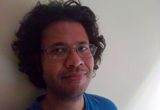 I’m not a social scientist, so it was with some anxiety that I travelled halfway across the world to attend the World Social Science Forum. The theme, “social transformations and the digital age,” gave me some hope. I teach online and I’m a telecommuter, so I thought as a person of the digital age I wouldn’t be entirely out of place.
I’m not a social scientist, so it was with some anxiety that I travelled halfway across the world to attend the World Social Science Forum. The theme, “social transformations and the digital age,” gave me some hope. I teach online and I’m a telecommuter, so I thought as a person of the digital age I wouldn’t be entirely out of place.
At the conference, which took place recently in Montreal, I learnt a bit about the “social transformations” part as well, especially in one area: scholarly publishing. A lot is changing in scholarly publishing, so it’s a time of transformations, but what’s “social” about it? I think there’s a clue in two movements: open access and academic blogging.
Did you know that open access journals are the default mode of publication in Latin America and most of them don’t charge article-processing fees? I didn’t before meeting Dominique Babini and Rosario Rogel, two champions of open access in Latin America who are involved with CLACSO and Redalyc respectively.
I learnt that a good deal of research that happens in Latin America is published in regional open access journals for various reasons. For example, in the social sciences, research carried out locally is not always of interest to major publishers who aim to serve international readers.
That kind of logic is perhaps simplistic, and I wondered if it wasn’t true that research published in top journals is more likely to have an impact. Not really, I surmised. Open access regional journals seem to be a pretty large phenomenon in Latin America, and they’re often funded by universities and academic associations. Surely these journals must be having some real and positive impact for the non-commercial system to thrive, at least in the social sciences.
International research communication in a lingua franca—and the mechanisms to support this—are important in some fields such as medicine, but maybe not so much in others. So when we talk about open access or scholarly publishing, it would help to set the context first.
One of the panel sessions I attended at the conference was on academic blogging. The four researchers on the panel maintain active blogs—writing in French, English, or both—and three of the panelists blog on hypotheses.org, a platform for researchers in the arts, humanities, and social sciences. And their blogs are beautiful. Take a look at the “Freakonometrics” blog of Arthur Charpentier, for example.
André Gunthert, one of the panellists, said that blogging demonstrates that one is committed to producing knowledge, not just speaking to authority through publications. Loïc Le Pape, another panellist, felt that blogging “offers unrivalled editorial freedom and potential academic recognition.”
The chair of the panel, Marin Dacos, an open access advocate and the person behind Hypotheses, said that there are now about 700 blogs on Hypotheses, and they receive applications every day from researchers wanting to blog.
Although the panel was modestly titled “minor forms of academic communication,” I doubt academic blogging is going to remain a minor or peripheral activity for long.
I was part of a panel on university education, and I spoke about the free online courses in research writing offered by the AuthorAID project, which supports developing country researchers in publishing their work.
Scholarly publishing has been around for more than three centuries, but a lot of people have never encountered it and probably don’t care much for it. I think academic blogs and open access publications have the potential to change that.
Competing interests: Nothing to disclose.
Ravi Murugesan is an associate with INASP, an international development charity in the UK. He works from his home in Mumbai, India.